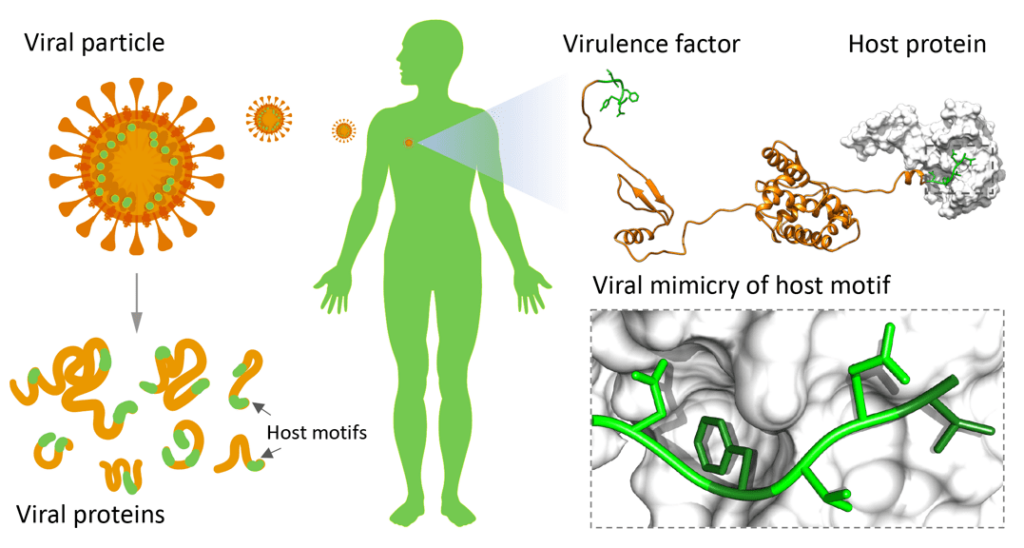SRI International has been awarded a National Science Foundation (NSF) grant through the Grants for Rapid Response (RAPID) program. RAPID is a mechanism used by the NSF to provide funds for urgent research that addresses unexpected disasters or events such as the COVID-19 pandemic.
SRI scientists will use the RAPID grant to develop a first-of-its-kind system for classifying viruses based on the various ways they mimic their biological hosts to cause infection. Recognizing patterns of biological mimicry among viruses may allow scientists to better understand specific virus’ preferred hosts and infection pathways, and thereby provide valuable information for drug discovery and development. Under the RAPID grant, the SRI team will train a machine-learning algorithm to create a system for classifying target viruses, and then evaluate the algorithm’s precision using SARS-CoV-2 as a test case.

Viruses mimic the host to successfully infect and spread. Viral particles and proteins (left) contain many short sequence motifs of the host (green). The host uses its motifs to organize activities in the cell (e.g., interferon production for the cell’s immune system). Viruses mimic our motifs, typically in virulence factors (right), to gain control of host systems and successfully infect our cells. SRI’s NSF RAPID project will build a novel tool for classifying viruses based on the host motifs they contain and the various ways they mimic their biological hosts to cause infection.



